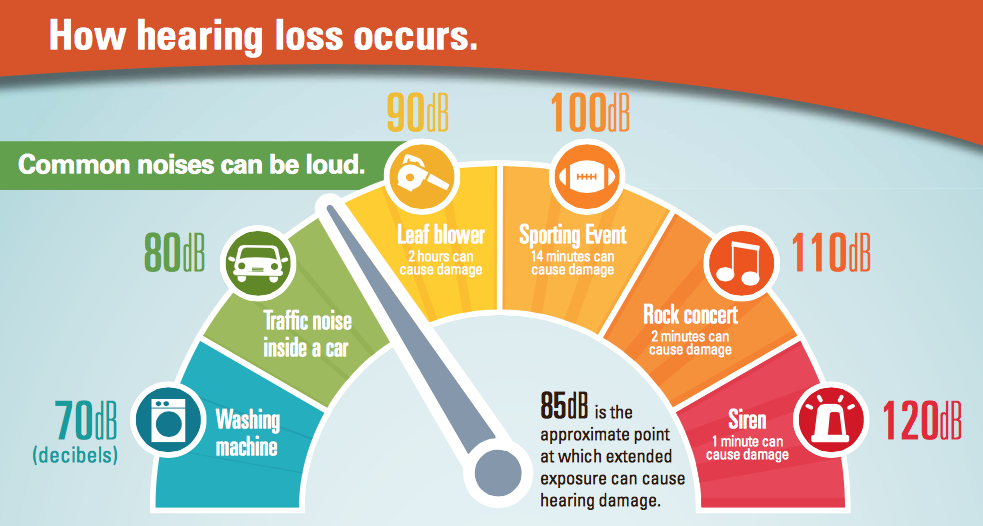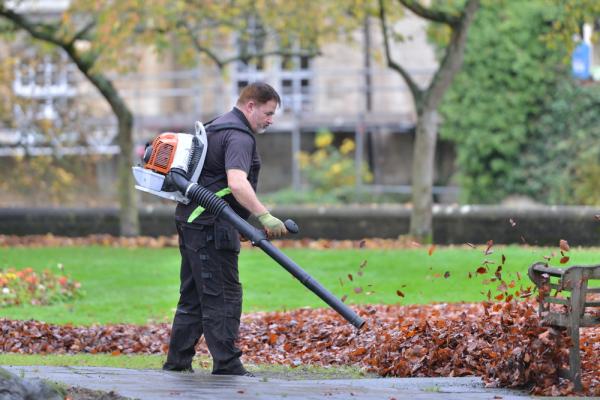Yes, it's that time of year again.
Spring is here – having officially arrived on Monday, March 20. The season's traditional warming weather is being felt more in other parts of the United States, and less in the Northeast (where we are).
And with Spring's arrival comes the traditional, time-honored rituals: the blooming of flowers, the shedding of coats ... and the cascade of proposals from villages and towns across America to ban the use of leaf blowers.
Lawns, as we know, matter to a great many people, and when they emerge after a snowy winter homeowners want them looking nice and well manicured. Landscapers, for obvious reasons, concur. So out come the noise-producing air blasters that – while they're used to keep things looking tidy – are the bane of many a neighbor's existence.
A primary reason bans are called for is that the noise generated, depending on one's proximity to the machine, can damage one's hearing: certainly the operator, and possibly others nearby. Sure, those at a safer distance just find them a terrible nuisance, and as the gas-powered blowers become more ubiquitous the resulting high-pitched din often blankets neighborhoods – making the calls for a ban to grow louder.
By some estimates (and a precise figure is elusive) more than 400 municipalities have bans in place, and each year dozens more debate whether to join the ranks. One of those is Maplewood, NJ, which approved a pilot program last summer and is currently weighing whether to make it permanent, which would prohibit the commercial use of blowers from May 15 to Sept. 30. A decision is expected shortly.
And one issue is how leaf blowers affect hearing, and general well being.
Leaf-blowing noise “is just something that gets into your bones and even when it stops, you’re still hearing that sound,” said Jamie Banks, the founder of Quiet Communities (QC), a self-described "non-profit organization dedicated to protecting our health, environment, and quality of life from the excessive use of industrial outdoor maintenance equipment," speaking the New York Times. Meanwhile, government health experts state that exposure to high decibel levels can damage hearing – permanently.

"Hearing loss is the third most common chronic health condition in the U.S. Almost twice as many people report hearing loss as report diabetes or cancer," states the Centers for Disease Control and Prevention, in a new report on hearing released last month. "About 40 million US adults aged 20-69 years have noise-induced hearing loss. ... Being around too much loud noise – like using a leaf blower or going to loud concerts – can cause permanent hearing loss. And once it's gone, you can't get it back!"
As the accompanying graphic from the CDC shows, hearing damage begins to occur when someone is around "extended exposure" to sound of 85 decibels or higher. And just two hours of operating a leaf blower, which hits 90 decibels, can cause damage and hearing loss.
All of which means that operators, who handle these machines strapped to their backs all day, and every day, face significant risk, even if wearing protective head gear (and many workers don't). As for others nearby, depending on how far away, they can also be at risk. Ms. Banks reportedly added that "leaf-blower noise at 50 feet ranges from 64 to 78 decibels," meaning those closer can be adversely affected.
As for the number of landscapers who are potentially affected, the ranks are growing. In 2014, there were "868,770 landscaping and groundskeeping workers" in the U.S., according to a report issued in May of that year by the National Association of Landscape Professionals. The workforce has increased since; QC says the figure at the end of 2016 reached 1.6 million, including supervisors. NALP adds that currently "there is still a chronic shortage of qualified employees at all levels from lawn care and landscape technicians and managers to landscape designers and sustainability experts. The industry needs more qualified workers to meet the demand."
Proponents of leaf-blower bans also say the tools pose a breathing threat – to asthmatics in particular – due to the gas exhaust produced, as well as the dust and dirt particles sent airborne. Those issues, however, are harder to quantify. But decibels are another story; they can be measured. Which means that if you don't have one brewing already, a leaf-blower battle may be coming soon to a town near you.




